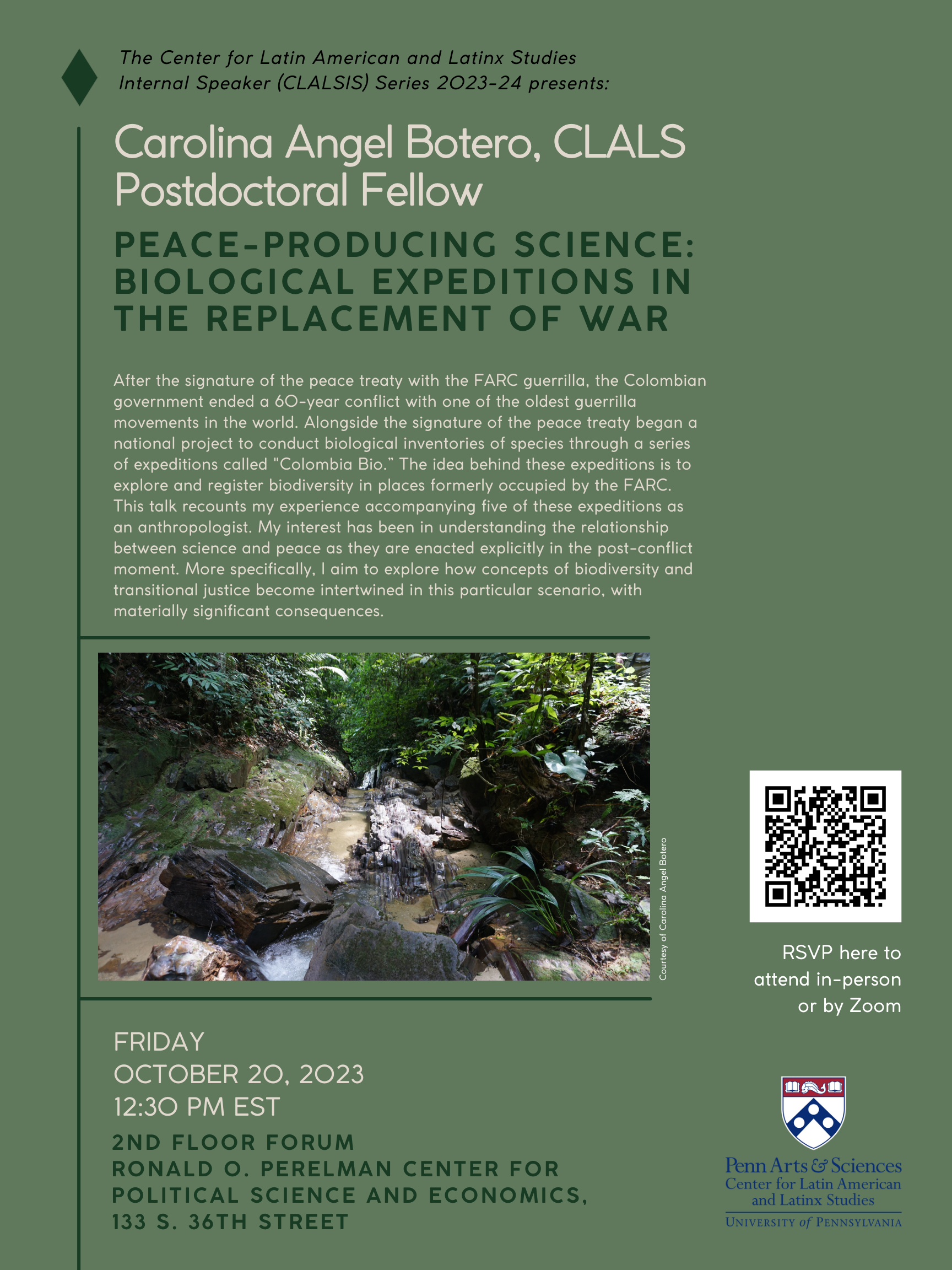CLALSIS
133 S. 36th Street, Ronald O. Perelman Building
2nd Floor Forum

Please join us as Carolina Angel Botero, CLALS Postdoctoral Fellow, presents: "Peace producing science: Biological expeditions in the replacement of war," a talk on the role of biodiversity research in the transitional justice process in Colombia.
RSVP HERE to attend in person.
RSVP HERE to attend on Zoom
Abstract:
After the signature of the peace treaty with the FARC guerrilla (Fuerzas Armadas Revolucionarias de Colombia: the Revolutionary Armed Forces of Colombia), the Colombian government ended a 60-year conflict with one of the oldest guerrilla movements in the world. Alongside the signature of the peace treaty began a national project to conduct biological inventories of species through a series of expeditions called "Colombia Bio". The idea behind these expeditions is to explore and register biodiversity in places formerly occupied by the FARC. This talk recounts my experience accompanying five of these expeditions as an anthropologist. My interest has been in understanding the relationship between science and peace as they are enacted explicitly in the post-conflict moment. More specifically, I aim to explore how concepts of biodiversity and transitional justice become intertwined in this particular scenario, with materially significant consequences.
Presenter Bio:
Carolina Angel Botero is a Postdoctoral Fellow with the Center for Latin American and Latinx Studies for 2023-2024. She has a Ph.D. in Anthropology from the Universidad de Los Andes (Bogotá, Colombia) and a MA in Anthropology from the New School for Social Research. Her research interests lie in Anthropology and Law, focusing on transitional justice. For her doctoral dissertation, she conducted an ethnography on the practices of scientists during the Colombian government's peace treaty with the FARC guerrilla in 2016. Her current research aims to bridge law, science, and anthropology, focusing on natural sciences' definitions and approximations of nature. During her fellowship, Carolina will continue to explore issues of dispossession and territorial and ecological justice, which are central to the debates in Latin America. Recent developments in Latin American legislation on the rights of nature have led to new questions on the political capacity of "nature" to gain subjecthood, legal standing, and citizenship rights. Her research will study the collaboration between judges, scientists, and local communities with other-than-human beings in creating multispecies environmental justice arguments and efforts. The project's primary objective is to answer questions regarding territorial defense through nature-human alliances.

 Center for Latin American and Latinx Studies
Center for Latin American and Latinx Studies